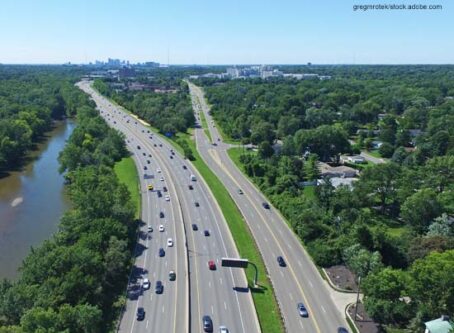OOIDA submits comments on automated vehicle policies for trucks
Approximately one week after the U.S. Department of Transportation held a listening summit on automated vehicle policies with industry stakeholders, including the American Trucking Associations, the Owner-Operator Independent Drivers Association filed comments with Transportation Secretary Elaine Chao expressing concerns with AV technology.
Until recently, commercial vehicles have taken a backseat when it comes to autonomous vehicle policies and legislation. Current bills in both the House and Senate explicitly exempt large commercial motor vehicles from proposed AV legislation. During the listening session on March 1, questions about AV policy specific to truckers were addressed.
Despite ATA’s lack of worry about job displacement, OOIDA’s comments expressed more urgency for the government to address the economic disruption that autonomous vehicles may cause.
“Our members have a keen interest in the development and deployment of autonomous vehicles as these technologies have the potential to drastically change the trucking industry, in particular its workforce,” said Todd Spencer, acting president and CEO of OOIDA. “Federal, state, and local governments must ensure that AVs optimally serve both the general public and the trucking industry.”
Although autonomous vehicle technology is being viewed as a solution to problems including crashes, fatalities, congestion and pollution, OOIDA warns the DOT to be wary of “unforeseen concerns and practices” as they pertain to the driver workforce, data transparency, cybersecurity, truck platooning and infrastructure funding.
In upcoming AV legislation, rules and guidelines, OOIDA wants to see a complete federal study analyzing the impact autonomous vehicles have on trucking jobs, including a separate study on how the technology will affect small trucking businesses.
Additionally, OOIDA wants future action by the federal government to require a driver be present in a truck’s power unit. Some proposals for passenger vehicles urge lawmakers to update current rules that require a driver to reflect technology that is fully self-driving. With that said, OOIDA would also like the government to issue a report identifying each provision, requirement or specification of the Federal Motor Carrier Safety Regulations that may be modified or updated.
Lastly, OOIDA requests the federal government tighten cybersecurity requirements. The 2016 Automated Vehicles 1.0 and 2017 Automated Vehicles 2.0 offered manufacturers loose guidelines when adhering to proposed cybersecurity requirements. Both versions only require companies to issue a plan and self-report the efficacy. OOIDA wants companies to be able to demonstrate their cybersecurity systems are effective.
“The development of AV technology will dramatically transform the trucking industry, but the professional drivers and millions more working in other segments of trucking face a particularly uncertain future, as technology might first diminish the quality of their jobs, then threaten to displace them completely,” Spencer wrote in OOIDA’s comments.









